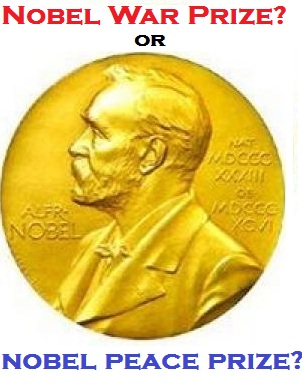
Laura Poitras, a founding editor of The Intercept, won an Academy Award tonight for her documentary “Citizenfour,” an inside look at Edward Snowden, the National Security Agency whistleblower; with Glenn Greenwald, journalist who reported many of the Snowden exposés.
[The annual Academy Awards (“Oscars”) are selected by secret/anonymous votes of the members of the Academy of Motion Pictures (previous winners of Oscars). So, on occasion, the awards are given to a film which rebukes unpopular government policies. And that is definitely the case with the award of “Best Documentary” to Citizenfour, which described the path of the world’s most famous whistleblower, Edward Snowdon who, at great personal cost and risk, exposed the NSA and the most intrusive government betrayal of privacy rights in history. Though vilified and threatened by the government and politicians, Snowdon has won popular praise and accolades to such an extent that even the filmmakers of Hollywood chose to reward Laura Poitras, director, and the film Citizenfour, with the highest honor. We urge everyone to seek out and spread the word about this film. — Frontlines ed.]
“The disclosures that Edward Snowden revealed don’t only expose a threat to our privacy but to our democracy itself,” Poitras said in her acceptance speech. “Thank you to Edward Snowden for his courage and for the many other whistleblowers.” Snowden, in a statement released after the award was announced, said, “My hope is that this award will encourage more people to see the film and be inspired by its message that ordinary citizens, working together, can change the world.”
The film, which has been hailed as a real-life thriller, chronicles Snowden’s effort to securely contact Poitras and Glenn Greenwald in 2013 and meet them in Hong Kong, where Poitras filmed Snowden discussing the thousands of classified NSA documents he was leaking to them, and his motives for doing so. The film takes its title from the pseudonym Snowden used when he contacted Poitras in encrypted emails that were revealed in her documentary.

 n 1971, an American military analyst named Daniel Ellsberg gave a New York Times reporter a copy of “United States – Vietnam Relations, 1945-1967: A Study Prepared by the Department of Defense,” a multi-volume work that became known as the Pentagon Papers. The massive, classified study painted a candid and unflattering portrait of the military’s conduct of the Vietnam War. The Supreme Court
n 1971, an American military analyst named Daniel Ellsberg gave a New York Times reporter a copy of “United States – Vietnam Relations, 1945-1967: A Study Prepared by the Department of Defense,” a multi-volume work that became known as the Pentagon Papers. The massive, classified study painted a candid and unflattering portrait of the military’s conduct of the Vietnam War. The Supreme Court 


